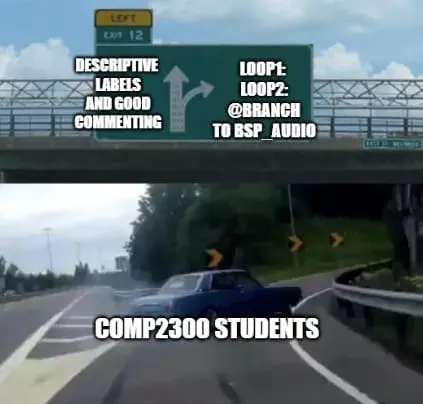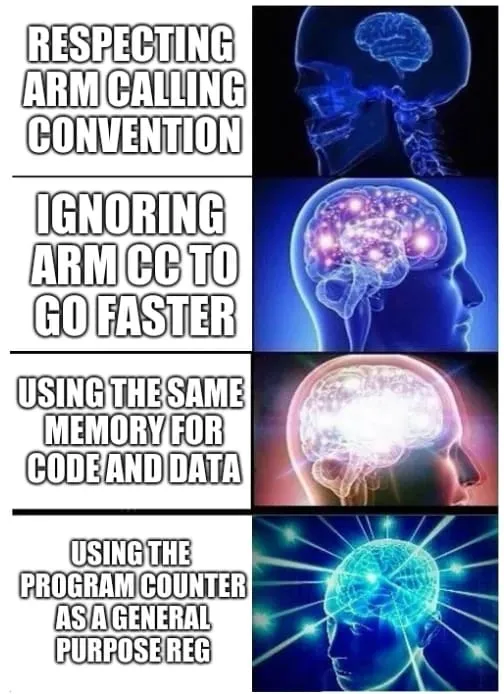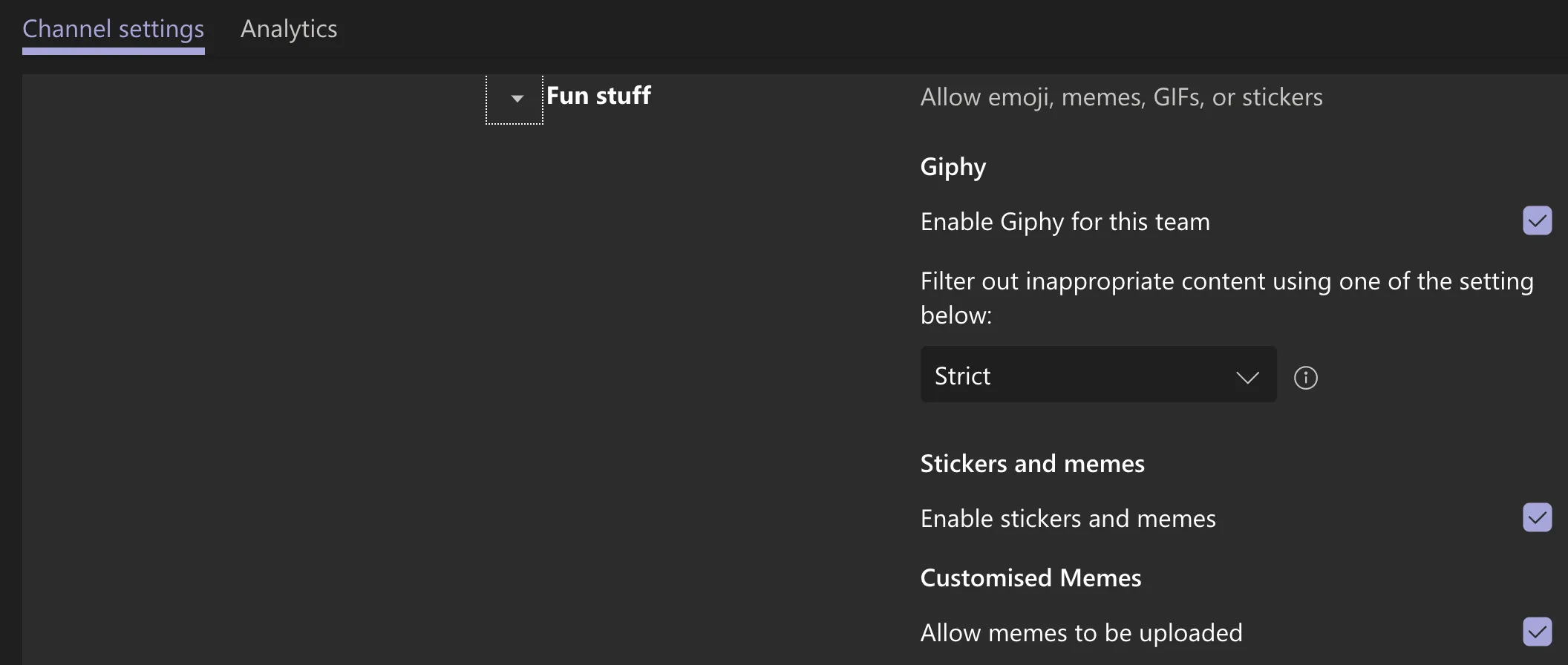Note
This post was noticed by the good folks at the ANU Centre for Learning and Teaching, and they asked if they could syndicate it on their Interact blog—so you can read it there as well.
A few years ago I re-wrote one of our core computer architecture courses (it has the course code COMP2300). It’s a large (400+ students) compulsory course, so there’s a spread of different levels of interest, aptitude & enthusiasm in the student cohort.
One of the tricky parts of COMP2300 is that it doesn’t use a high-level programming language (with recognisable keywords like if, else, for, etc.) where a function which adds two integers (whole numbers) together might look like this:
int add(int a, int b) {
return a + b;
}Instead, in COMP2300 all the programming is done in “assembly” language, which is fairly close to the direct stream of bytes that the CPU sees as it’s executing your code. But it’s less readable to humans—the above add function might look like this in assembly language:
add:
sub sp, sp, #8
str r0, [sp, #4]
str r1, [sp]
ldr r0, [sp, #4]
ldr r1, [sp]
add r0, r0, r1
add sp, sp, #8
bx lrWhile this is a great chance to learn how CPUs work, the unfamiliarity can be challenging—and the students aren’t shy about saying so.
The hidden communication channels
I’ve learned over the last few years is that for every “official” course forum/communication channel there’s at least one shadow channel that’s created somewhere else. These Facebook/WhatsApp/Insta/WeChat/TikTok/etc. channels are where the students really let their hair down and say what they think about the course.
One unexpected (to me) upside of these channels is that as the students chat with one another, they come up with some really helpful explanations of the concepts they’re struggling with in the course material. And they’re really good at making memes. Here are just a few of the ones which I’ve seen end up on the allowed “cheat sheets” in the COMP2300 final exam.





I don’t know where they came from—although clearly at least some of them were created specifically for COMP2300. But I know from talking to students that they really helped them understand and remember key concepts from the course.
Harnessing students as content creators
I’m currently brushing up my course syllabus for the new semester which starts next week. And I’m sure my students will make new memes for (among other things) explaining the course content to each other. But if these memes only appear on the “secret” channels then that’s not good from a student equity perspective. I want to make sure all students benefit, not just the ones in the right “hidden” channels.
So this year I’m going to include a meme thread as part of the official course forum. Since it’s an official course communication channel I’m sure it’ll be kept respectful, and then all my students can benefit. As I teach bigger and more diverse classes, the chance to harness these students’ brilliance in meme-making (and some of them are seriously good at it) to help all my students learn seems like a win. I can’t wait to see what they come up with ☺
Note: if you’re using MS Teams for your class discussion, there’s even a few settings relating to memes and gifs which you might want to make sure are enabled.
